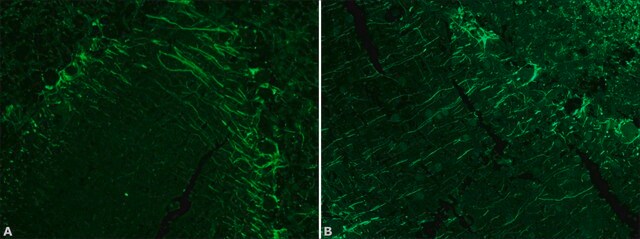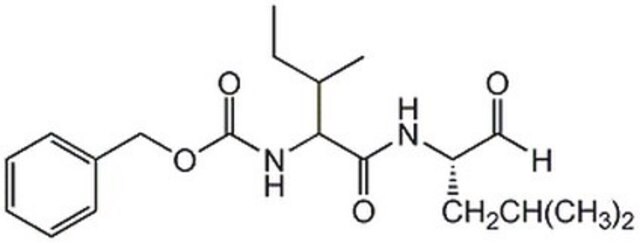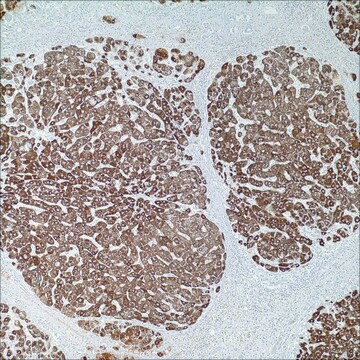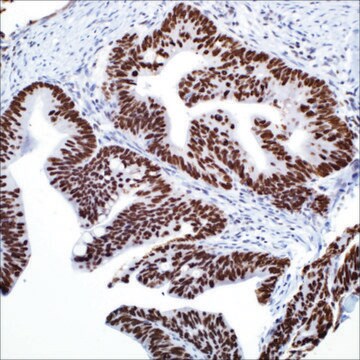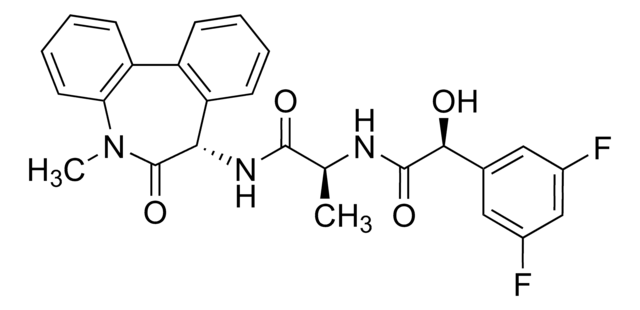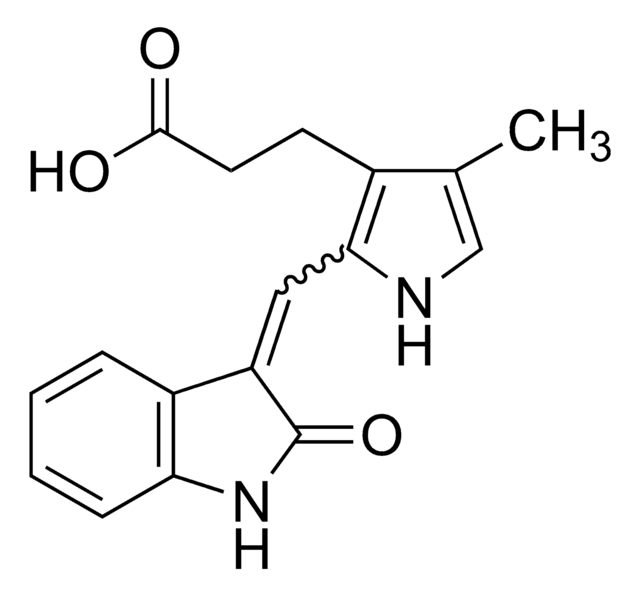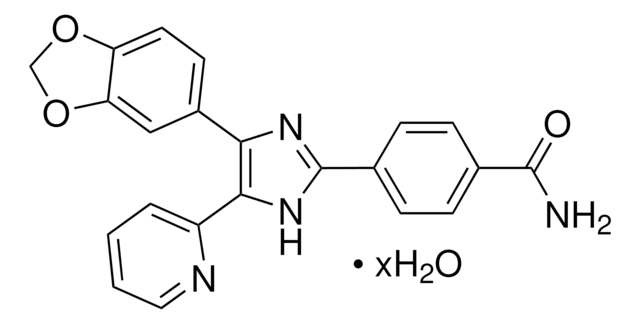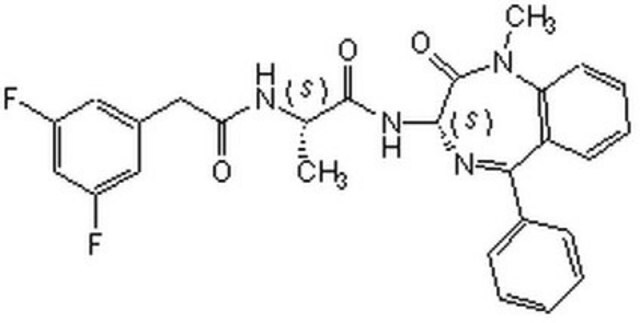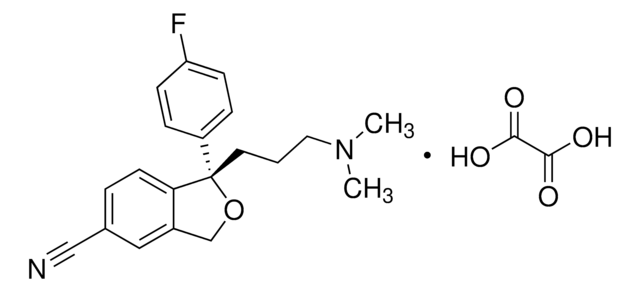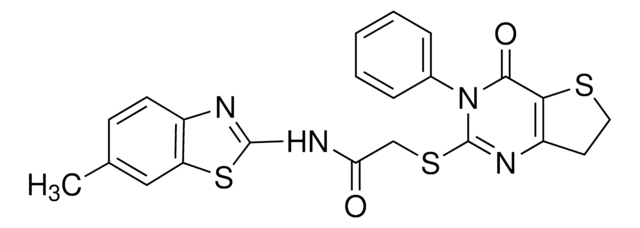565770
DAPT
≥98% (HPLC), lyophilized, γ-secretase inhibitor, Calbiochem®
Sinónimos:
γ-Secretase Inhibitor IX, DAPT, N-[N-(3,5-Difluorophenacetyl-L-alanyl)]-S-phenylglycine t-Butyl Ester
About This Item
Productos recomendados
Nombre del producto
γ-Secretase Inhibitor IX, Gamma-Secretase Inhibitor IX - CAS 208255-80-5, is a cell-permeable inhibitor of γ-secretase (Aβtotal IC₅₀ = 115 nM, Aβ42 IC₅₀ = 200 nM).
Nivel de calidad
Ensayo
≥98% (HPLC)
Formulario
lyophilized
fabricante / nombre comercial
Calbiochem®
condiciones de almacenamiento
OK to freeze
protect from light
solubilidad
DMSO: 20 mg/mL
Condiciones de envío
ambient
temp. de almacenamiento
−20°C
InChI
1S/C23H26F2N2O4/c1-14(26-19(28)12-15-10-17(24)13-18(25)11-15)21(29)27-20(16-8-6-5-7-9-16)22(30)31-23(2,3)4/h5-11,13-14,20H,12H2,1-4H3,(H,26,28)(H,27,29)/t14-,20-/m0/s1
Clave InChI
DWJXYEABWRJFSP-XOBRGWDASA-N
Descripción general
Acciones bioquímicas o fisiológicas
Envase
Advertencia
Otras notas
Nishitomo, K. et al. 2006 J. Neurochem.99, 1555.
Oddo, S., et al. 2004. Neuron43, 321.
Dovey, H.F., et al. 2001. J. Neurochem.76, 173.
Sastre, M., et al. 2001. EMBO Rep.2, 835.
Vandermeeren, M., et al. 2001. Neurosci. Lett.315, 145.
Información legal
Código de clase de almacenamiento
11 - Combustible Solids
Clase de riesgo para el agua (WGK)
WGK 3
Punto de inflamabilidad (°F)
Not applicable
Punto de inflamabilidad (°C)
Not applicable
Certificados de análisis (COA)
Busque Certificados de análisis (COA) introduciendo el número de lote del producto. Los números de lote se encuentran en la etiqueta del producto después de las palabras «Lot» o «Batch»
¿Ya tiene este producto?
Encuentre la documentación para los productos que ha comprado recientemente en la Biblioteca de documentos.
Los clientes también vieron
Nuestro equipo de científicos tiene experiencia en todas las áreas de investigación: Ciencias de la vida, Ciencia de los materiales, Síntesis química, Cromatografía, Analítica y muchas otras.
Póngase en contacto con el Servicio técnico

